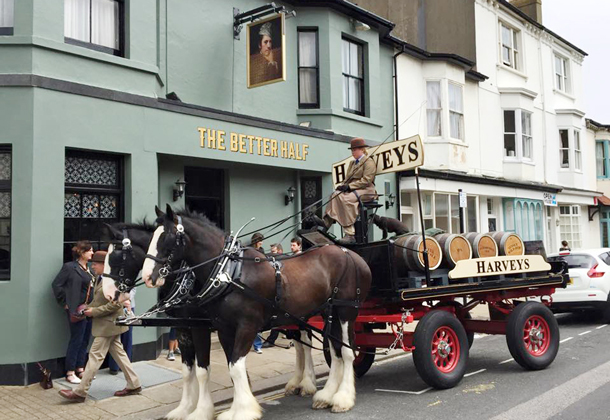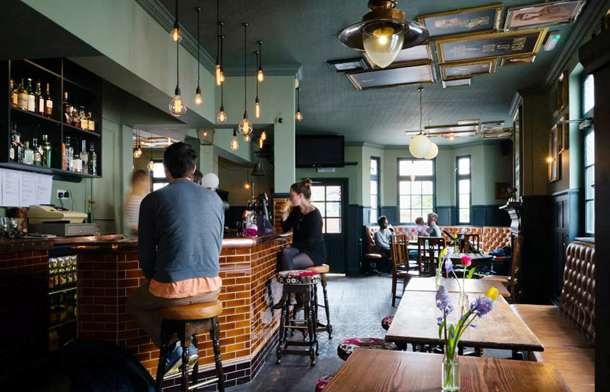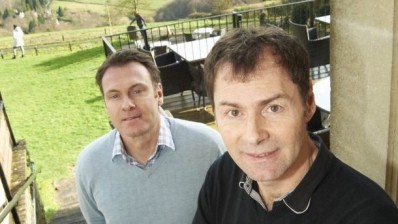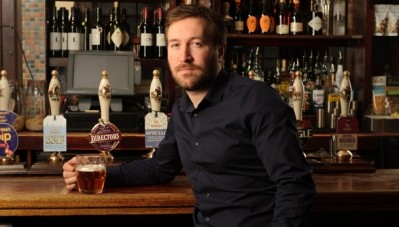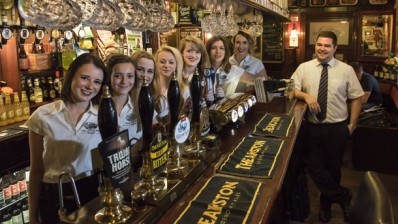Running a pub in association with Star Pubs & Bars and Punch
Pub Success: Part 1 - Starting out in the pub trade
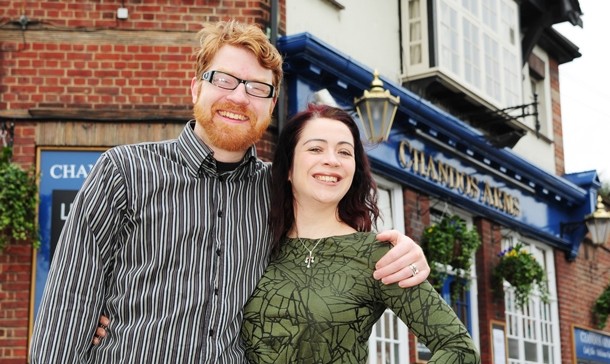
For many communities, the vicar and the publican are two of the most important figures, so it’s perhaps not so surprising that award-winning pub newcomer Emily Kolltveit switched from a career as a Church of England administrator.
She and her husband, Are, took on the Chandos Arms in Colindale in April 2014 and transformed it from a dreary wet-led boozer into one of north-west London’s leading small live music venues.
Both have music industry experience: Norwegian Are is a record producer and sound engineer and Emily’s CofE experience involved turning St John at Hackney church into a hip venue for gigs.
Reinvention
This reinvention of a public building with a new use provided the inspiration for the transformation of the Chandos, which, fewer than two years down the line, has hosted gigs by the likes of Mark Thompson from Madness and jazz singer Liane Carroll — and been named Newcomer of the Year in the Star Pubs & Bars Awards.
“We didn’t think we could afford a pub in London, but the Chandos Arms came up and it was at the top end of our budget,” says Emily.
Though far from being the most fashionable part of town, Colindale had potential, she adds, with 80,000 new homes scheduled to be built in the next 16 years, making it the fastest growing suburb in Europe.
The pub had already undergone a recent refurbishment, but a few extra changes were made to the look, with added bits of bric-a-brac creating a more Bohemian feel and the outside given a lick of paint.
But it was a change in trading style that really helped things take off.
Packages
“We got rid of the sports package, because it’s just not for us, and introduced a food offer, which it had never had before,” says Emily.
Staging gigs was the easy part — building up the pub’s reputation was tougher.
“We do a lot of social media activity and just talk to customers about what’s coming up. We’ve also made use of the screens that used to show the sport to publicise events, and established links with a recording studio in Mill Hill to generate interest among people who are into music.”
Emily says that trade newcomers should consider closely what sort of package they buy into. The Kolltveits had the option of a three-year or five-year rolling tenancy, or a lease, and chose the first.
“It’s a really good idea to be able to do that to give yourself a feel for if it’s the right thing for you.
“It was also a good place to start because the brewery is responsible for looking after the building and it is quite an old pub. That kind of financial pressure is probably not what you want right at the start.
“The business side is nothing to be frightened of,” she says. “We used Roslyn’s who are very helpful and will hold your hand through things.”
Networking
Emily also recommends establishing good trade networks. “We go to pub conventions and meet other licensees who are very keen to share their inside knowledge, as long as you’re not on their doorstep, of course.”
Running a pub requires a unique set of skills: the capacity for hard work, a sociable personality, thick-skinned resilience, creativity, risk-taking, basic business acumen, personnel management and a hard-nose for negotiations are just a few that spring to mind. It might not be for everyone, says Emily.
“At the beginning, it was really hard,” she says. “There are very long hours but it is also very enjoyable. I love talking to people and am a very social person, so we got to know the community very well.
“Other newcomers need to be aware that it’s a lifestyle, not a job, especially if you’re living above the pub, as we are. If you want to close the door at 5pm and put your feet up, it’s not for you.
“More than anything else, you need an adventurous personality and be a little bit ‘who dares wins’.
“It’s important to think outside the box. Don’t get stuck in the idea that if you open the doors, people will come in. You need to be creative about giving people reasons to come to the pub rather than choosing to get a six-pack and sit at home on the sofa. If you do that, you’ll have a lot of fun and make some money.”
Money
Focusing on the money is the advice for new licensees from Lawson Mountstevens, managing director of Star Pubs & Bars, who highlights five key figures to keep tabs on: wage percentage, food GP, drink GP, yield and break-even.
“They need to know how these figures are interconnected and how, if one changes, another changes too,” he says.
“Many business operators think they know their pub’s break-even figure, but often it’s a forecast that changes, going up if, for example, wages exceed budget or they miss their food GP.”
Never pulled a pint
Simon Stern took on another wet-led pub, in Hove, East Sussex, in May 2015, having been made redundant from his previous job as a city equity trader after 25 years. He’d never even pulled a pint until that point.
He was fortunate to have start-up capital from his previous career and a property sale, and invested in an Enterprise Inns lease on the Red Lion, transforming it from an unloved back-street boozer into a buzzing, stylish food-led pub, via a major refurbishment and a name change to the Better Half.
“I liked the idea of being my own boss and I’m a very sociable person so that side of things appealed,” he says. “And instead of putting money into property, this gives me both a career and a place to live.”
The refurb included a copper bar top, Victorian-style tiles and upgraded seating with several booths, to create what Stern calls “intimate and private spaces”.
The look was created by local design house We Like Today, after Stern was inspired by its work at another pub, the Bell at Ticehurst, East Sussex.
“I wanted it to be something that very felt high quality but comfortable and like it had been there for a long time,” he says.
Concept
The concept for the Better Half included a bespoke geometric pattern which runs as branding through flooring, tables, windows, the website and menus, which has sections for the Main Half, Sweeter Half, Extra Half and Cheesy Half.
Food has been crucial to the success of the Better Half package, says Stern. Chef Andy Kier was retained from the Red Lion but given more of a creative licence than he’d been allowed before.
“He’s a really good chef, but his style of cooking and experience didn’t really match that of the old pub. Food has been a massive hit. It’s good-quality British food with a twist, sourced from local producers, and we back that up with high-quality wine, spirits and craft beers and ciders.”
The new name was the biggest change. “From a business point-of-view, I wanted it to be different and something that would score highly on Google. I also liked the idea that it related to partnerships and that it could reflect that we’re in the better half of Brighton & Hove, which is a bit cheeky I know.”
Perhaps like many newcomers attracted to the trade, the creative side of running a pub came more naturally than the business end.
Social element
“The social element is very easy,” he says. “I don’t find it difficult talking to people.
“The difficulty has been in fire-fighting and being one man. It can sometimes be a bit overwhelming in terms of organisation.
“I wasn’t put off by things like GPs because buying, selling and negotiating was what I’d done before, though in a very different environment.
“But managing cash flow is one of the biggest difficulties and getting on top of the timing of things like ordering and administration.”
His main advice to other newcomers is bring these issues under control as quickly as possible — and then make sure there’s the opportunity for down-time.
“It can be all-consuming,” he says.
“I live upstairs and I’ve quickly come to realise that you do need to set a day aside when you are away from the pub. I’ve got a good team and I’m very comfortable with leaving my staff to enable me to do that.”
